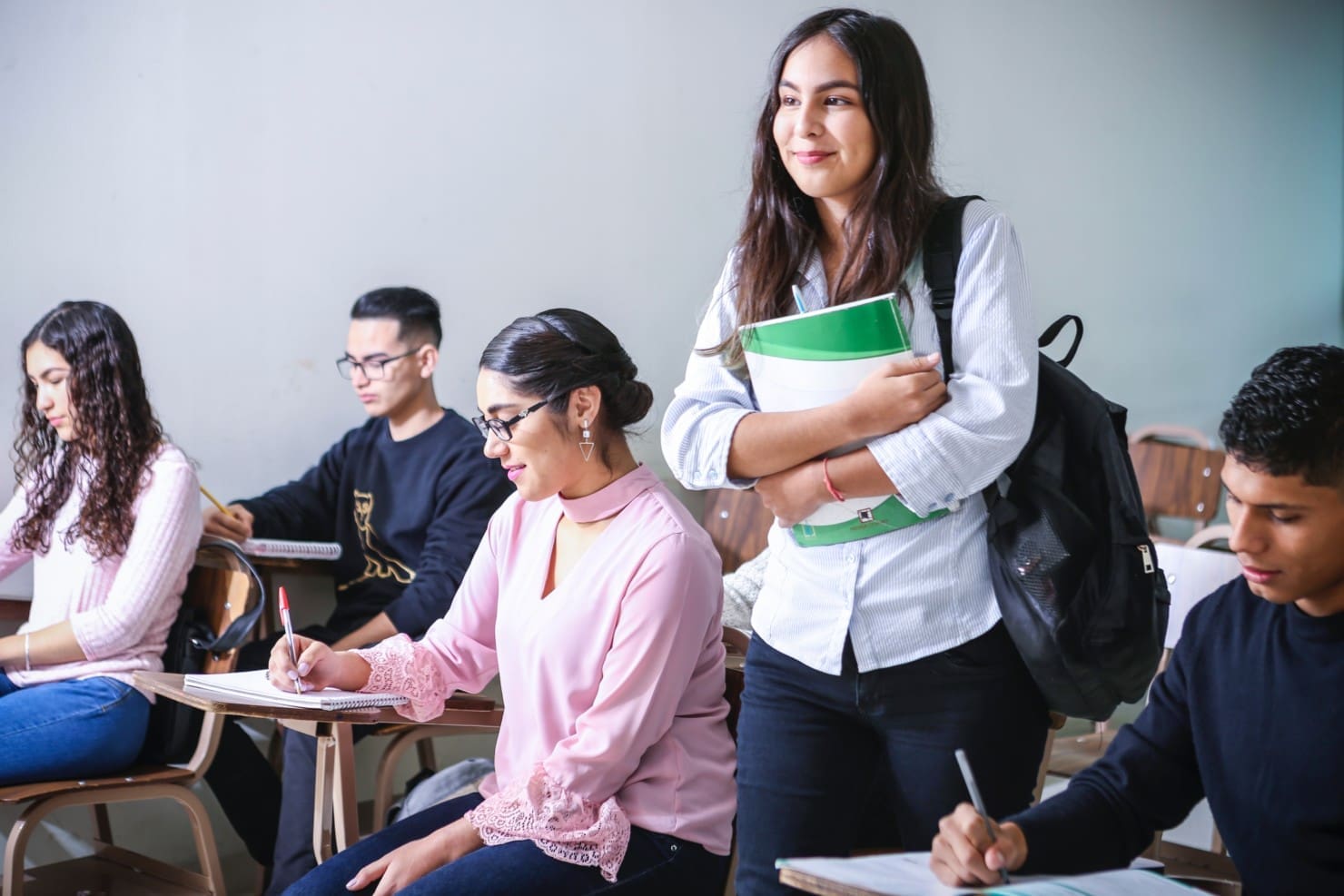
Get stories and expert advice on all things related to college and parenting.

After midterms (which were tough enough), it can feel as if the intensity of assignments and final exams only gets worse. I find it really easy to become overwhelmed this time of year as group projects, long essays and class registration pile up. I look back at my syllabi and just want to cry — something I imagine your student can relate to.
The key to finishing the term strong is facing the classes and assignments in small increments, planning well and focusing on the future. Here are my top tips and tricks for helping your student power through the rest of their quarter or semester.
Your student may have 15 things to complete by the end of the term! Facing the list of tasks all at once is a surefire recipe for stress.
They don’t have to finish everything RIGHT NOW; they have time. Encourage them to make a list of the assignments but accomplish them one at a time. They can create milestones for big projects and due dates for smaller assignments.
Are you getting the sense that your student is really flailing? Maybe they haven't attended class regularly or gotten seriously behind on assignments. In that case, you might want to read "5 Situations That May Be Paralyzing Your College Student Right Now" by Vicki Nelson of College Parent Central. It will help you figure out what might be happening and how to help.
What motivates me the most to get work done is rewarding myself after each task. If the task is small, the satisfaction of crossing it off my to-do list will suffice. For bigger assignments like essays or studying for a test, I have a plan in my head before I start for what I’ll do when I finish. When the weather’s nice, I like to go on a ride on my long board. Otherwise, I might make myself a cup of coffee or buy some hot cocoa.
Rewarding myself at the end of a task feels fulfilling and energizes me to keep working. Plus, the break is good for my mental and physical health. (More on that below!)
No matter the task, a good time and place are key components of success. Your student will be most efficient and successful with their class prep and studying when they’re in a comfortable space where it’s easy to focus. For some, an isolated, quiet location (for example, the library, their dorm room or a study room) is where they’ll be most productive. For others, a public place where other people are working or music is playing is the best place. For me, that spot is either a coffee shop off campus, the music building or upstairs in the HUB, the main student building on my campus.
Timing is also important. Everyone has a personal rhythm and certain times during the day when they’re most efficient. You can help your student understand whether that’s in the morning, midday or at night and encourage them to do most of their work at that time — even if it means rescheduling other things that are important to them, like socializing.
Depending on my mood and the time of day that I set out to get work done, I might go to one place for multiple hours or change locations every few assignments (or when I feel like I need a stretch). A change of location is really helpful. Not only does it allow me to take a break from my work, but it gets my blood flowing and wakes me up.
If your student prefers to stay in one spot for a long time, encourage them to take a stretch break every half hour or each time they finish something on their checklist. Regular, short study breaks, even during the crush of finals, will boost their energy and make them more productive.
Whether your student feels totally confident in a class or is drowning in confusion, each of these opportunities are put in place to help them. Professors and TA’s often schedule review sessions the night or a few nights before an exam. During these, the instructor will give practice problems and review the kind of information that will be on the exam.
Even if held online because of COVID-19, these sessions are very beneficial because they give your student a better idea of what to expect and provide a review of the material. Study sessions save time because your student won’t need to study as much on their own and will be more effective in choosing what to study.
When I’m overwhelmed, it’s easy to lose sight of what the work is all about. Sometimes I need to step back and remind myself why I’m writing a chapter review that feels identical to the 20 I’ve written already this semester. I do it to learn, to keep my brain active and to develop skills for my future. That’s why I’m at college after all.
Encourage your student to do the same as they head toward final exams. They may be deciding which classes to take next term. If so, ask them which ones will be most beneficial and enjoyable. Make sure they know that not every assignment will be exciting — they may have to trudge through dozens of scholarly journals or confusing concepts — but every assignment has something valuable to impart.
The end-of-term workload isn’t an impossible mountain to climb, even though it can feel that way. The most important role you can play is supporting and encouraging your student to keep putting their best foot forward and power through. Remind them to take care of their physical and mental health and to give themselves small rewards along the way. In just a few more weeks, they’ll get the big reward — a nice, long break!